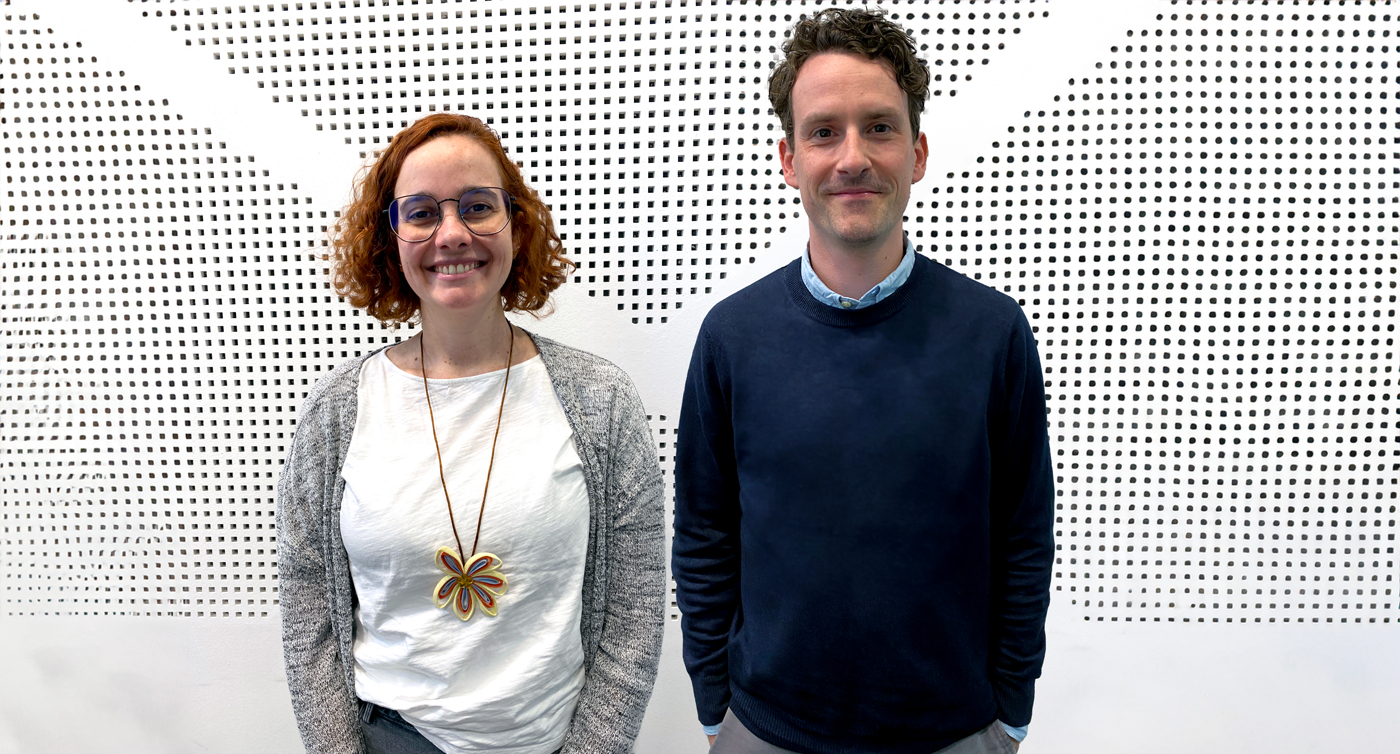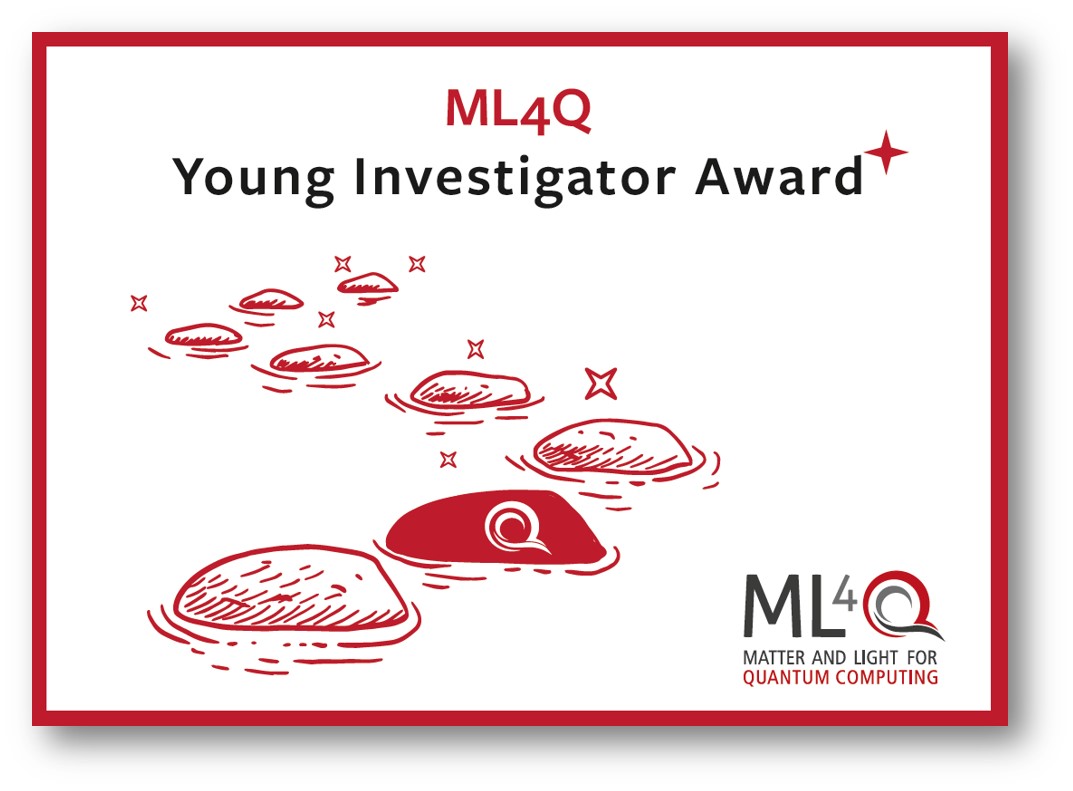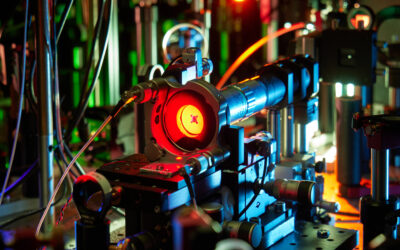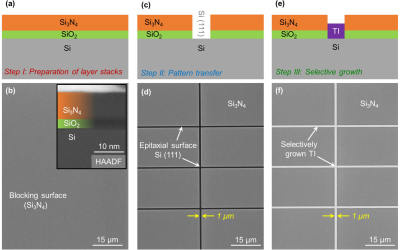Looking back at the ML4Q Young Investigator Award
An interview with Gláucia Murta and Julian Schmitt

In November 2023, the cluster awarded six early-career researchers the ML4Q Young Investigators Award, recognizing their noteworthy contributions to ML4Q. This acknowledgment specifically commends their accomplishments that require collaborative efforts across various sites.
Curious about the recent developments in their collaborative journey and the impact of the ML4Q Young Investigators Award, we reached out to Gláucia and Julian for their perspectives.
Julian, how has 2023 been for you so far? Any career or research developments you can share?
It’s been great year 2023 and a learning experience on many fronts.
1) I started my own junior group on January 1, 2023, building on funds provided by the cluster and an ERC Starting Grant.
2) I had the first PhD and Bachelor students joining in spring and summer.
3) I started setting up the lab and first photon BECs in small lattice structures were observed in late summer.
4) An ML4Q summer intership student joined my team, and she did very well. I am optimistic (after discussions with her); the experience convinced her to pursue a Phd in quantum science after finishing her studies. I missed the call for this year to offer a new fellowship (sometimes it’s hard to spot the right emails if one receives many of them), but I do think that the ML4Q Internship program is drawing international attention to research performed at ML4Q.
How about you, Gláucia? How did last year go for you?
2023 was a great year! Just to name some highlights:
– I became a PI at ML4Q.
– I was able to attend lots of cool conferences and meetings.
– A new PhD student funded by ML4Q, Monika, joined in July and we started investigating quantum communication protocols for continuous variable systems.
– My first PhD student funded by ML4Q, Giacomo Carrara, successfully graduated in December.
– The year ended with very happy news: I got a Professorship position in Vienna, so I will be joining the TU Wien as an assistant Professor in June.
How have you been going about your cooperation? And how did you decide to use the award funds?
Our collaboration has been very active, with many meetings and discussions (both in-person and online) in Bonn and Düsseldorf between the theory subgroups and the experimentalists.
This helped us monitoring the individual progress of all subprojects (quantum info/many-body theory/ experiment) and streamline our efforts.
I have used the Young Investigator Award funds mostly for my personal career development in order to attend seminars and puchase small lab items, literature as well as software.
The award being part of your involvement in ML4Q was intended to offer you a significant stepping stone in your career towards academic independence. Do you think this goal was achieved? Did you identify another instrument that could accelerate this process?
The award definitely helped to develop my career. Firstly, the notion of having received an award (irrespective of the funding sum) is great for my CV. It provides flexibility and freedom in taking choices for my own career development (in the form of seminars, and also participation at international conferences).
The amount of funds seems fully appropriate for career development purposes at this early career stage.
I think a great instrument that will help to accelerate the career development are teaching seminars for professorship positions. I’m glad to hear that Achim Rosch is offering a course now (and I hope there are some spots left…)
Definitely! As I highlighted in the previous question, in the last year the funds gave me freedom to attend conferences and meetings that I strategically chose to boost my independence and increase the chances of getting a permanent position (which was successful). Plus, as Julian mentioned, an award always looks good in the CV.
Regarding other instruments, I can mention that I really enjoyed participating in a structured long career development program at my university (HHU). This included workshops on specific career related topics (leadership, how to apply for professorship, etc) and mentoring sessions in small groups, which really helped to reflect on where I was and where to go in my career. I think this was also a significant stepping stone towards my academic independence.
Any piece of advice to early-career reseachers who are seeking academic independence?
Apply for grants! (even if you don’t think you have a chance)
Take all the opportunities to present your work in conferences and while visiting other groups. (that is how people get to know you and your research)
Join some career development events, they can be very helpful.
Apply for grants, fellowships, talks, communicate with your colleagues (even if they are on a higher hierarchical level). Put yourself out there!
It’s always better to try (even if you fail to get that grant or so…) than to not even go for it.
Try to collect several such puzzle pieces and put them together in a way that is unique and represents/builds your research profile.
Ultimately, this is crucial for obtaining a permanent stand in the academic world.
News involving ML4Q Young Investigators
Einen Tag Physikerin sein! Melde Dich jetzt an zum Girls’ Day 2023
MINT Fans und Teens aufgepasst! Am Girls'Day 2023 tauchen wir mit euch in die spannende Welt der Quantenphysik ein. Als kleinste, elementare Bausteine der Welt folgen die Quanten ihren ganz eigenen mysteriösen Gesetzen. Vieles aus unserem Alltag - wie z.B. Laser oder...
Work published in Physical Review Letters shows that fluctuations and response of a BEC to a bath of molecules are directly linked by thermal energy
Work by ML4Q Young Investigator Julian Schmitt and his team was recently published in Physical Review Letters. The discussed results show that fluctuations and response of a BEC to a bath of molecules are directly linked by thermal energy. The results demonstrate "the...
Study suggests a platform for the realization of fully in vacuo quasi-1D nanostructures of three dimensional topological insulators
Joint work of ML4Q members Mussler, Schüffelgen, Grützmacher, Schäpers and Mayer at Forschungszentrum Jülich was recently published in Nanomaterials. In the work, the authors introduce a platform that facilitates the realization of fully in vacuo quasi-1D...



